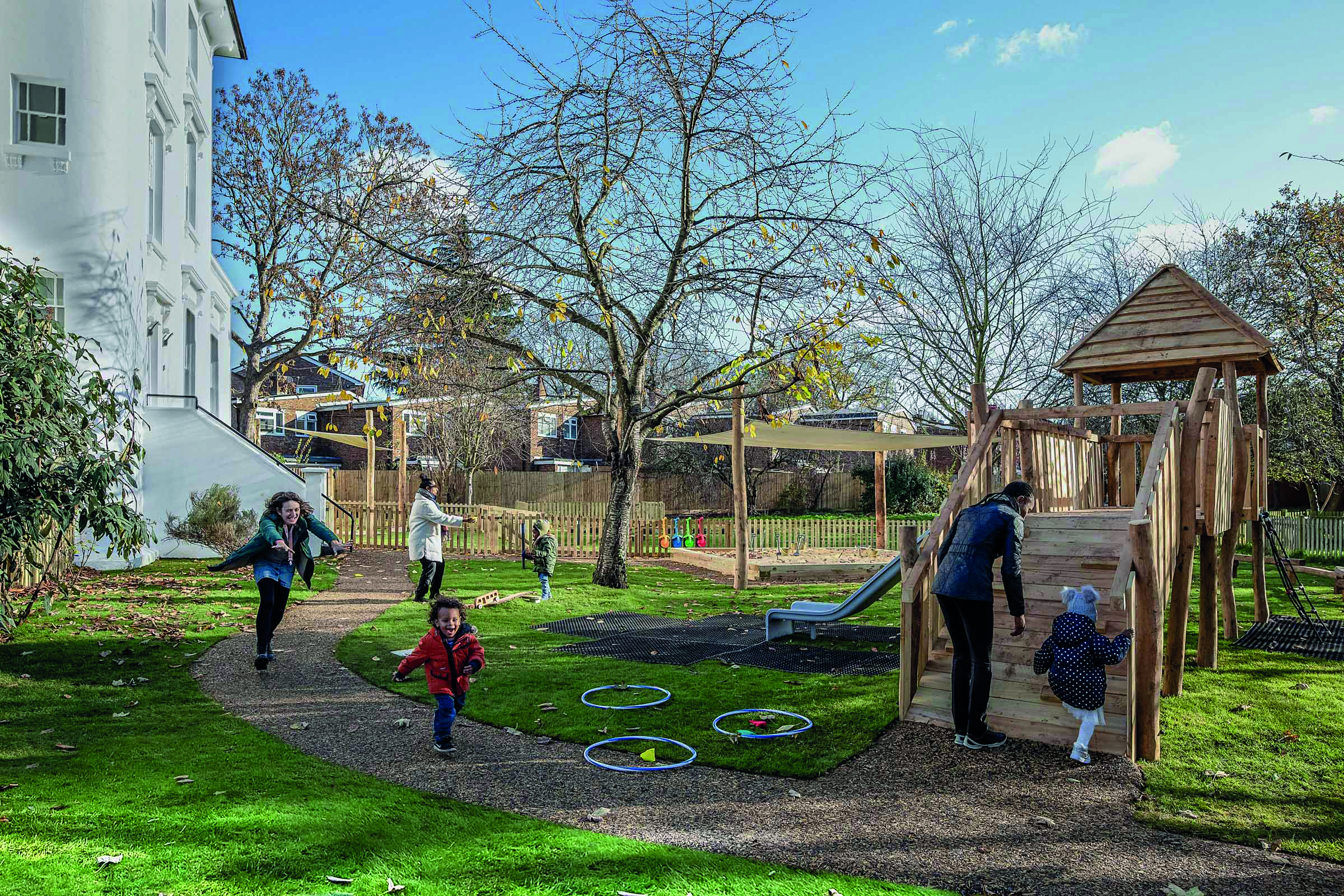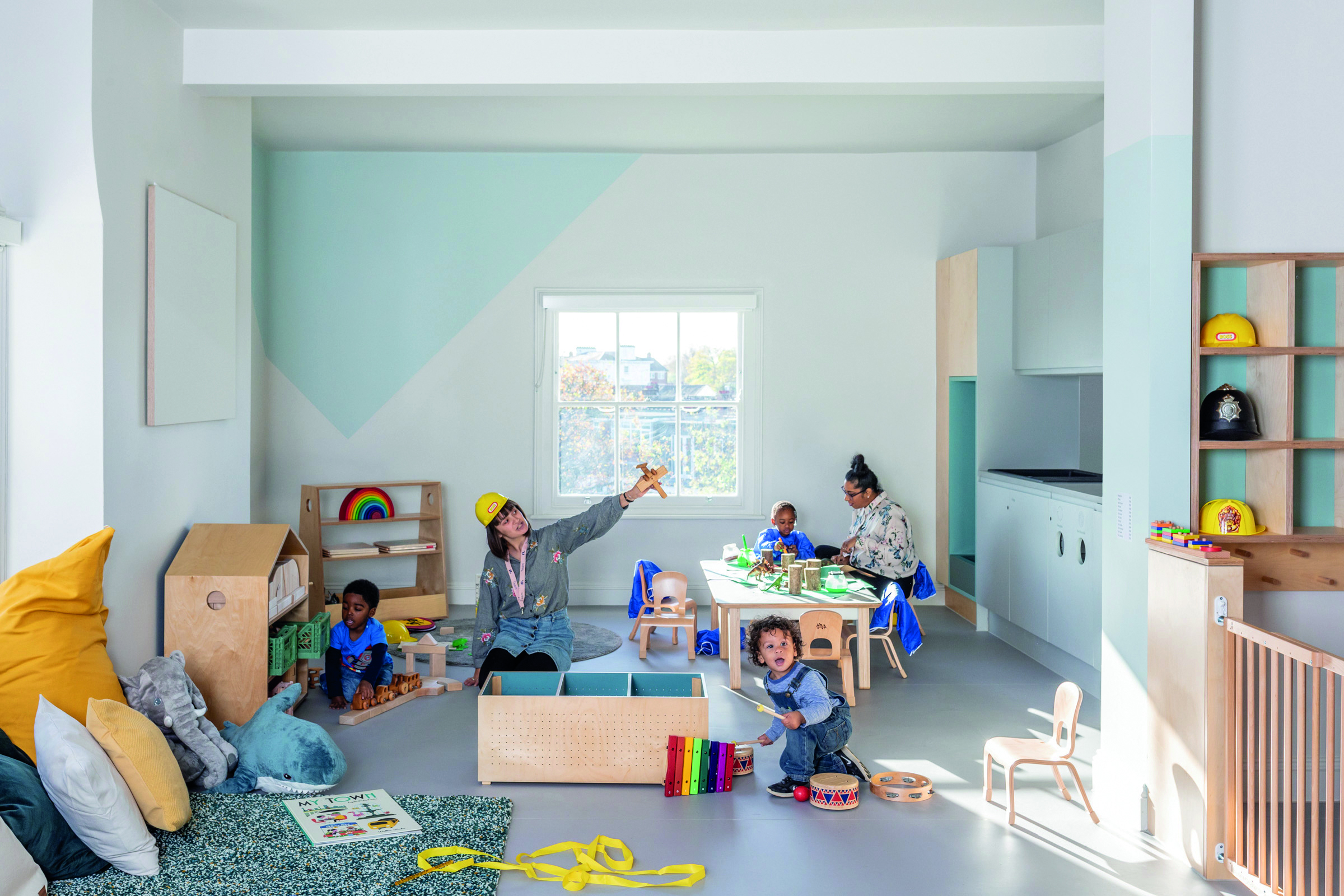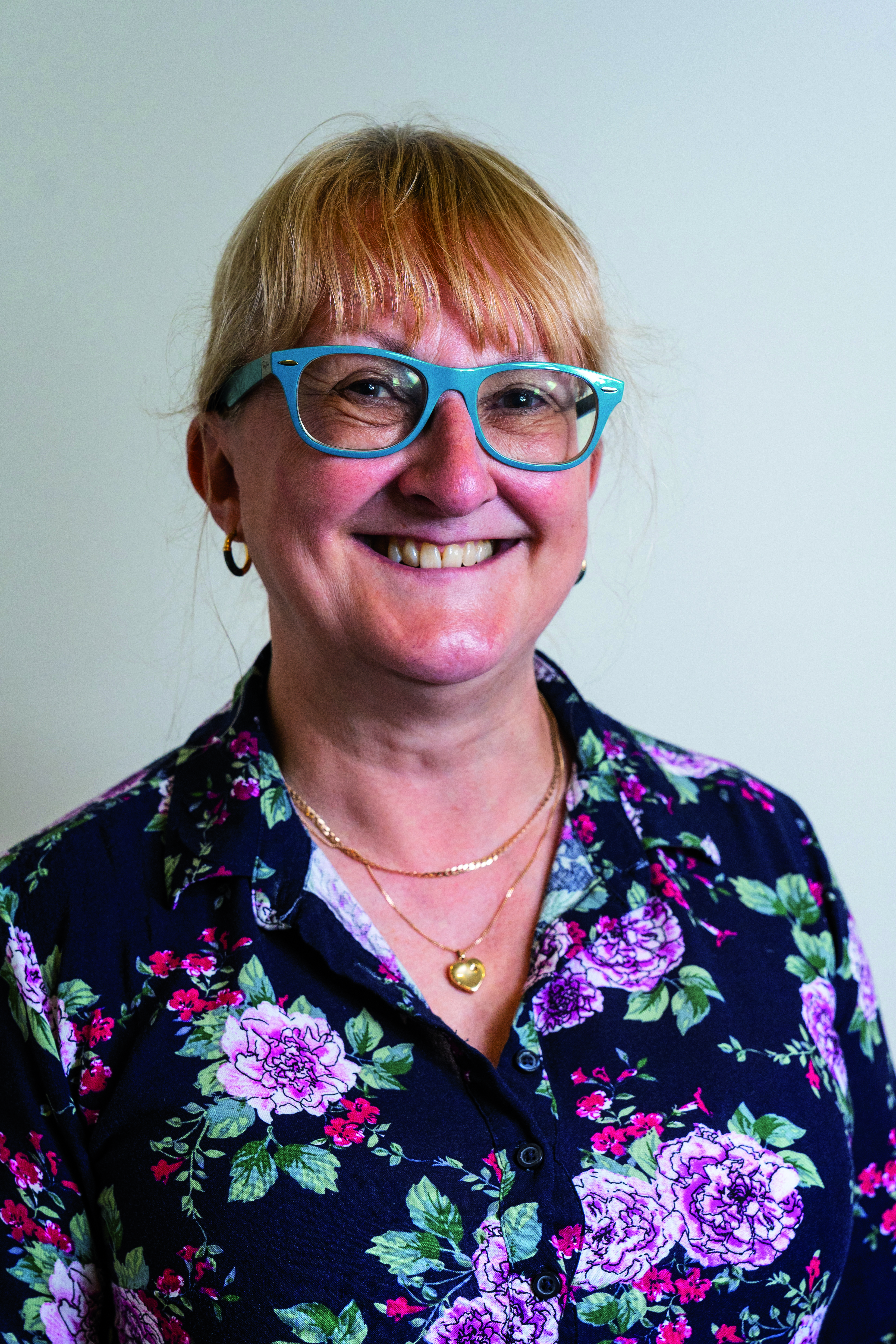
The direct benefits of high-quality nursery provision on children’s development and outcomes are well documented. Kathy Sylva, lead author of the 2004 Effective Provision of Pre-School Education (EPPE) study, found that it ‘transforms the learning of all children’, but especially those at risk of later difficulties. Meanwhile, the Effective Pre-School, Primary and Secondary Education (EPPSE) study showed that its benefits go right up to GCSEs.
Maintaining high standards of care and education is a top priority for providers, despite the pressures they face. There is ‘no excuse’ for poor quality, says Heather Young, Grandir UK’s operations director (pictured). 
‘It’s still possible to deliver exceptional education and care to all children, if you have the right leadership, mindset, practices and training in place,’ she says.
WHAT IS QUALITY?
The benchmarks of quality relate to how well children learn, achieve, make progress, and how effectively they are kept safe.
‘These should be our markers to continually review quality,’ highlights consultant Jo Caswell (pictured), who works with providers to establish what high quality provision looks like in practice. 
Quality provision is ‘not just about getting through the next Ofsted inspection’, says Caswell, who runs Peachwell Early Years Consultancy with colleague Kate Peach. ‘It’s about considering the quality aspects of what we do and why we do them in a more prominent way, to ensure the best possible outcomes for children.’
One of the cornerstones of quality, highlighted in the revised EYFS, focuses on the progress children make from their individual starting points, and how skilfully and meaningfully practitioners plan age-appropriate and tailored opportunities for them to learn and develop. ‘The quality of interactions between practitioners and children, as well as knowing and supporting the family, is another area that stands out,’ says Young at Grandir UK, which has 58 children’s settings and one after-school club. ‘And there’s a heightened focus on planning a rich, effective curriculum that’s relevant to the children it supports.’
TAILORED CURRICULUM
How well a setting’s curriculum meets the needs of individual and groups of children, particularly those with special educational needs or disabilities (SEND) and disadvantaged children, is another key indicator of quality.
Outstanding leaders use ‘insightful’ pedagogies which take into account the linguistic, cultural, and religious background of the staff and cohort, explains Caswell.
‘They know their setting’s curriculum inside out; continually monitor its effectiveness and train their staff on how it needs to be delivered,’ she adds. But there is still a lot of confusion over this aspect of the Education inspection framework, ‘even in the larger nursery chains’, Caswell explains, resulting in some staff ‘misinterpreting’ what their teaching influences are.
IN OFSTED’s EYES
Ofsted’s Early Years Inspection Handbook states that provision should only be judged Outstanding if it is performing ‘exceptionally’ across the whole setting.
‘There cannot be variations in the quality of teaching, or how well staff interact and engage with children,’ explains Caswell.
One indicator of a setting’s quality is how well leaders and staff identify and respond to the changing needs of children. For example, if a cohort of children are identified as needing extra help in developing their language skills, leaders might carry out a full review of the provision for language development, ensure that staff complete specialist training, and support children who need extra help.
OUTSIDE PRESSURES
But the recruitment crisis, along with chronic underfunding and increased costs, have placed additional burdens on the sector, and small groups and standalone nurseries are struggling to compete with larger nursery groups.
‘We try to ensure our fees are as low as possible to accommodate all families, in addition to paying our staff in line with larger companies and offering the same benefits and training opportunities on a budget,’ says Leonie Butler, nursery manager at Montessori Minds in Essex.
However, ‘retaining highly skilled staff’ through competitive pay and benefits, in addition to the cost of specialised training, especially when large chains ‘are paying their new recruits much higher salaries’, Butler says, is the ‘biggest challenge’.
CONSISTENCY MATTERS
Consistency is a ‘huge challenge’ for large, fast-growing nursery groups like N Family Club (above) – which achieved the top spot in the Nursery Chains 2022 quality table after all five of its inspected nurseries were graded Outstanding – Clare Robinson, its education content manager admits.
‘This is a huge focus for our team,’ she explains. ‘Our in-house education advisors support and lead on quality, using the Ofsted grade descriptors to shape what they’re looking to observe, give clear and concise feedback on their observations, and outline plans for further development.’
The group has its own training academy which offers ‘far more’ professional development opportunities than independent sites, Robinson says. But the level of quality on offer is ‘only possible’ because of the large team of talented professionals, she adds.
SCHOOL-BASED CARE
The link between quality early years school-based provision and registered early years provision has become harder to measure since 2021, with PVI and maintained settings inspected under two handbooks – the Early Years Inspection Handbook and the School Inspection Handbook. At the time of the EPPE project, which concluded that children who attend settings where staff hold higher-level qualifications achieve better, the research mainly focused on nursery schools and maintained nurseries attached to schools.
Caswell says it is important to not form a perception that only school-based settings, or those with qualified teachers, can achieve an outstanding level of provision.
‘The development of the graduate-led scheme has helped to enrich practitioners’ knowledge of how we teach young children, but there are some amazing Level 3, and unqualified practitioners, working in the sector who rarely get recognised for the significant part they play,’ she says.
Caswell describes the rise in nursery groups as ‘encouraging’.
She believes this can ‘support career development’ for practitioners wishing to move into leadership roles and says she has been ‘impressed’ with the focus on quality from some nursery chains.
But she adds, ‘I’m also aware that some groups are being heavily influenced by profit levels rather than what is offered for children.’
QUALITY STAFF
More than ten years on from Dame Tickell’s Review and the Nutbrown Review, which scrutinised early years training courses, Caswell says it is ‘disappointing’ that there remains ‘considerable variation’ in the quality of early years training and the rigour applied to the assessment of candidates.
Grandir UK is addressing the ‘gaps in knowledge’ of new practitioners by going over the basics of child development during induction and probation and by taking on apprentices.
Young says, ‘We invest in training and wellbeing for all staff, including agency and bank staff. Getting used to working with hybrid staffing models was a reality that we had to accept: make everyone part of the team, work with agencies to provide us with the same people; set the same induction, training and expectations – and welcome them into the core team.’
She adds, ‘There are only pressures on quality if you don’t adapt to the environment in which you operate and allow the challenges to consume you. While we retain a realistic outlook, we must always have a positive, solution-focused mindset.’
Meanwhile, N Family (below) has moved to more on-demand training that teams can access at any time and a mentoring programme.

NURTURING HAPPINESS
At Montessori Minds, in Romford, Essex, ‘quality’ predominately focuses on the happiness of the children and staff.
‘We place high emphasis on staff wellbeing, as quality within our setting relies on highly skilled staff who feel confident, happy, respected and secure within their professional roles: essential to successfully enhancing children’s learning and development,’ explains Leonie Butler, nursery manager.
Staff at the Outstanding setting are trained in yoga and meditation and their achievements are regularly celebrated with the monthly ‘Outstanding Teacher Award’.
‘Inviting children to engage in real-life experiences alongside a teacher who is skilled in enabling a child to naturally explore their environment, while using sustained shared thinking to extend their knowledge and ask relevant questions, is the most effective tool towards quality,’ Butler explains.
For Magda Zurawska, nursery manager at Hopes and Dreams nursery in Old Street, London, quality is about striving towards a better outcome for children and accommodating their needs.
‘We no longer ask practitioners to do six different kinds of planning, we instead focus on sustained shared thinking, looking at what the children need in the moment, whether that be open-ended resources or exposing them to the wider community, keeping in mind the cultural capital aspect.’
Being creative around resources also helps, she says. ‘If a set of rainbow coloured stones is going to add value but they cost £93, I’ll use that money for a trip to Brighton beach, where we’ll collect the stones and bring them back to paint.’
MORE INFORMATION
The Effective Provision of Pre-School Education (EPPE) project, plus EPPE 3-11, EPPSE 3-14 and EPPSE 16+, are at https://dera.ioe.ac.uk
Dr Sue Allingham, early years consultant and author (right)
‘My feeling is that the current benchmarks of quality are now skewed towards academic achievement rather than quality of provision and practice. The Ofsted structure of “intent, implementation, impact”, while it could have been useful, has become part of the academic drive with the revised Framework being weighted towards reading, writing, phonics and maths. 
‘There is a perceived directive to teach phonics and maths at the earliest opportunity. The statutory Overarching Principles and Characteristics of Effective Teaching and Learning, although still in the Framework, are fading into the background.
‘There are too many accounts of settings being judged on their curriculum documents and how much “progress” has been made. There is also anxiety over preparing a curriculum, with many downloading documents that do not underpin developmentally informed teaching and learning. Much of the pressure comes from ill-informed expectations.
‘The way forward is to increase the awareness of early brain development, and that physical development is important for all areas of learning. However, sending teams on credible training is expensive and out of reach for many. In order to combat this, we need a government review on funding.’









